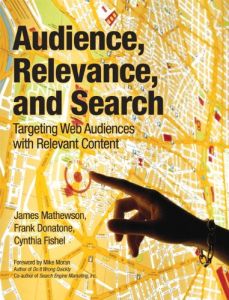
Recommendation
Even if you’re the next William Shakespeare, if you don’t write according to online standards you will fail as a web content creator. Internet users will not just ignore your web content; they probably won’t know it exists. This savvy new Internet writing guidebook by IBM web pros James Mathewson, Frank Donatone and Cynthia Fishel covers all of the technical information you need to develop web content that Internet users will find relevant and engaging. The authors emphasize that quality web content – material people can find and will read – depends on the right keywords. getAbstract recommends this superb, readable, wholly practical guide to editors, writers and those who plan and create material for the Internet.
Summary
About the Authors
James Mathewson is editor-in-chief of ibm.com and former editor of ComputerUser magazine. Frank Donatone is an IT professional in charge of improving IBM search rankings. Cynthia Fishel is an IBM expert on interactive and social media marketing.







Comment on this summary